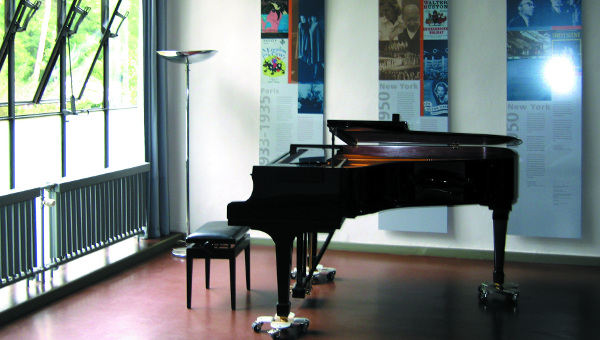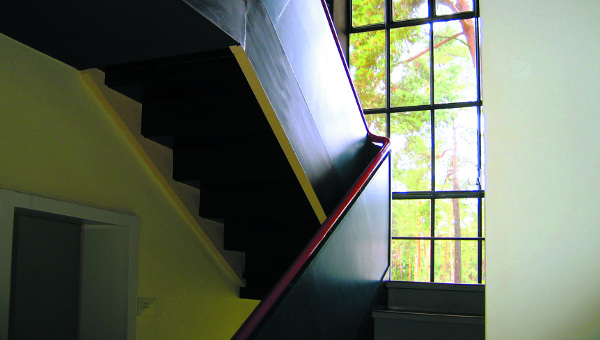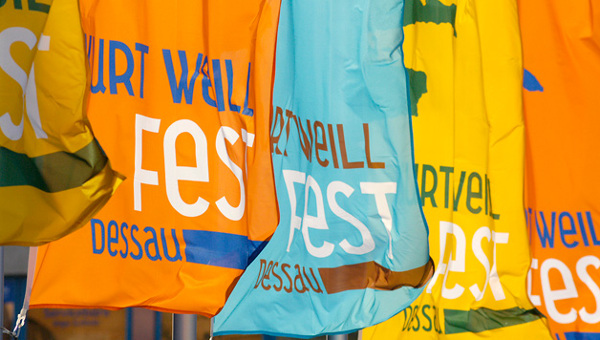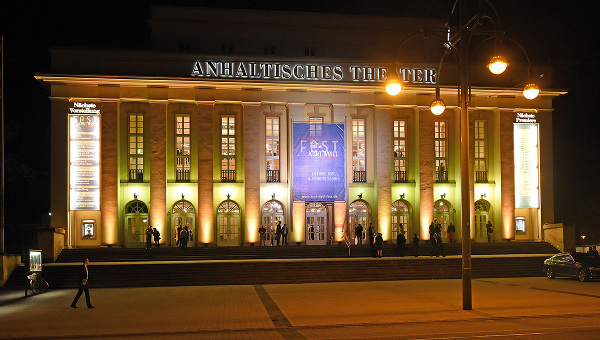





Ebertallee 63
06846 Dessau
Telefon +49.340.619595
Web: www.kurt-weill-fest.de/
E-Mail welcome@kurt-weill.de
Dienstag bis Sonntag 10.00–17.00 Uhr
Kurt Weill wurde am 2. März 1900 in Dessau geboren und verbrachte in der Hauptstadt des Herzogtums Anhalt seine Kindheit und Jugendjahre. Nachdem er zum Studium nach Berlin gezogen war und 1920 auch seine Eltern die Stadt verließen, sind fast keine originalen Lebensspuren der Familie Weill in Dessau verblieben.
1993 wurde das Kurt-Weill-Zentrum gegründet. Es handelt sich um die einzige europäische Dokumentations- und Informationsstätte über Leben und Werk des Komponisten der „Dreigroschenoper“. Das Zentrum befindet sich in dem 1925/26 nach Plänen von Walter Gropius erbauten „Meisterhaus Feininger“, welches zum UNESCO Welterbe zählt. Eine Dauerausstellung mit Film und Musikbeispielen informiert den Besucher über Leben und Werk Weills. Darüber hinaus enthält das Zentrum eine Bibliothek und eine Mediathek. In der Verbindung von Bauhaus-Architektur mit der Musik Kurt Weills taucht der Besucher ein in die faszinierende Welt der so genannten „Goldenen Zwanziger“. Das Kurt-WeillZentrum wurde im „Blaubuch“ der Bundesregierung als „Kultureller Gedächtnisort mit besonderer nationaler Bedeutung“ aufgenommen. Höhepunkt der Aktivitäten ist das jährlich stattfindende internationale Kurt Weill Fest Dessau.
Deutschland verfügt über musikalische Traditionen und Nachlässe von außerordentlichem Wert: Händel, Schütz und Bach, Beethoven, Mendelssohn, Schumann, Brahms und Wagner sind - um nur einige Namen zu nennen - weltweit bekannte und geschätzte Komponisten. Ihr Wirken hat eine einzigartige Musiklandschaft wesentlich mitgeformt.
Zahlreiche Orchester, Chöre und Ensembles, renommierte Musikfestivals und -reihen, Musikerhäuser mit Museen, öffentliche Archive und Bibliotheken, aber auch private Sammlungen bewahren ihr musikalisches Erbe.
Diesen unschätzbaren Fundus gilt es immer wieder neu zu beleben und für die Gegenwart zu erschließen. Den in der Arbeitsgemeinschaft Musikermuseen Deutschlands zuusammengeschlossenen Häusern kommt dabei eine wichtige Rolle zu. In ihnen begegnen wir dem Werk von Musikern und Komponisten, die die Kulturnation Deutschland außerordentlich bereichert haben. Über das individuelle Portrait, über die Vermittlung des einzelnen Œuvres hinaus tragen die Musikermuseen aber auch zur Pflege musikalischer Tradition insgesamt bei. Die vorliegende Broschüre unterstreicht diesen Aspekt der Zusammenschau, und sie lädt zu einer Reise in die Musikgeschichte Deutschlands ein. Ich wünsche diesem Reiseführer regen Gebrauch und eine große Resonanz.
Bernd Neumann, MdB
Staatsminister bei der Bundeskanzlerin
Der Beauftragte der Bundesregierung für Kultur und Medien
Zitat: Vorwort zur Broschüre der Arbeitsgemeinschaft "Musikermuseen in Deutschland", 2007.